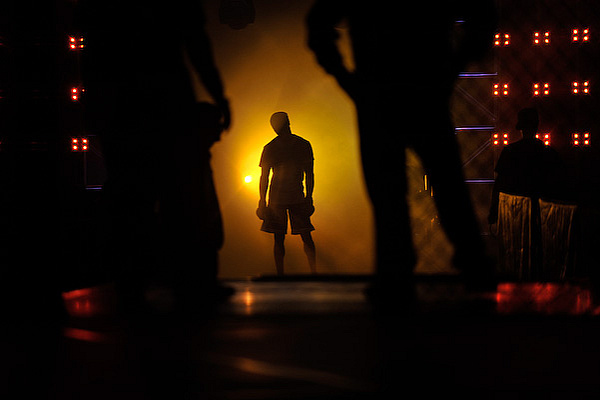Former Strikeforce Director Doesn’t Expect Promotion to Last

For many industry insiders, Mike Afromowitz was the go-to guy when it came to Strikeforce.
However, his tenure with the company as vice president ended shortly after Zuffa purchased Strikeforce in March. Now Afromowitz works for Lion Fight Promotions, a muay Thai promoter based in Las Vegas, but he still follows MMA.
Advertisement
On whether Zuffa will keep Strikeforce running: “I think the writing’s on the wall. They want one brand. It’s like, I almost -- I hope to see them just get rid of it. It’s a memory now. I’m being honest with you. … I don’t even want to think about it, see it. It’s on my mind still, but it’s probably better, from my perspective, if it just goes away. Let them do what they’re going to do. … It doesn’t seem to make sense from their business model to keep Strikeforce around.”
On Zuffa letting him go: “In the end, I’m not going to lie,
it was disappointing. Not to toot my own horn, but really I was one
of the guys that helped build Strikeforce. There were only like
four of us to start with. Even when we were at our peak, there was
only about 12 of us. When it was taken over, people said, ‘Oh,
we’re not looking to replace you. We want you to excel at your jobs
and stay.’ Then that quickly changed. I had a bad feeling when it
was acquired that that was going to happen, but certain people
asked me to have an open mind and listen and you know, I did. I
went to the meetings and I tried it out. It seemed workable from my
end, and then all of a sudden the tone quickly changed and they
really, just one by one, they let us all go.
Now all there is left is Scott [Coker] and his assistant. It’s unfortunate. You work so hard to build something. It was really a part of my life. It was a big part of my life. I worked day in and day out, weekends, nights. It was exciting. I liked the work. Otherwise I wouldn’t have been able to do it at the pace that I was doing it. It hurts. I guess from their perspective they did what they had to do. It’s their business. Who am I to tell them how to run their business? But you know, I would have appreciated some more respect.”
On whether Strikeforce CEO Scott Coker wanted to sell: “No, absolutely not. It was his baby. … We talked about it and he said it felt like he lost a kid. He didn’t want to sell Strikeforce. It was part of his life. It wasn’t just about money. It was something he loved to do. You wake up for it every morning. He didn’t want to sell Strikeforce any more than I wanted it to be sold. He was basically told it was being sold.”
On why Coker’s partners at Silicon Valley Sports & Entertainment wanted to sell: “For legal reasons I probably can’t go all into it, but there’s a number of things. A number of things. Maybe they just hit their threshold, their pain threshold, and it was understandable. They’re business people, and the numbers didn’t make sense at that point. In the end, that’s why they got out. But there’s always things happening behind the scenes that no one sees. The public isn’t privy to it. There’s a lot of mechanisms that triggered it. One thing led to another to another to another. … It wasn’t producing what it needed to, and it was time to get out.”
On whether Silicon Valley Sports anticipated Strikeforce making major moves in the industry when they did: “When [SVS] first signed on, there was no sign of the CBS and Showtime deal being available a year later. That was not foreseen at all. When that happened, it changed the entire landscape of the business. That right there was a big plunge. They took the risk. I feel like we were one step away from some big things financially. I think we were one step away. … The signing of Fedor, from a brand perspective, was huge and then the heavyweight tournament, there was so much heat on it when we first announced it that we were one step away, I feel like, from making a big, big dent. That step didn’t happen.”
On the Fedor/M-1 Global deal: “I think it was a deal that made it very difficult to be profitable. Getting Fedor, from a branding perspective, was huge. That was a risk that was, at the time, necessary to take. That was the biggest acquisition we had made as a company. Signing Fedor put our company, put Strikeforce in that many more households. Just the name Strikeforce got out there so far. The same with Herschel Walker. There’s certain names that when you attach yourself to [them], it just elevates the brand. It takes things to a new level. It’s an investment. At the time, it seemed like an investment that was necessary. … I think maybe it wasn’t the right move, but everybody wanted it at the time. When we did it, it sure felt good.”
Listen to the full interview (beginning at 59:40).






